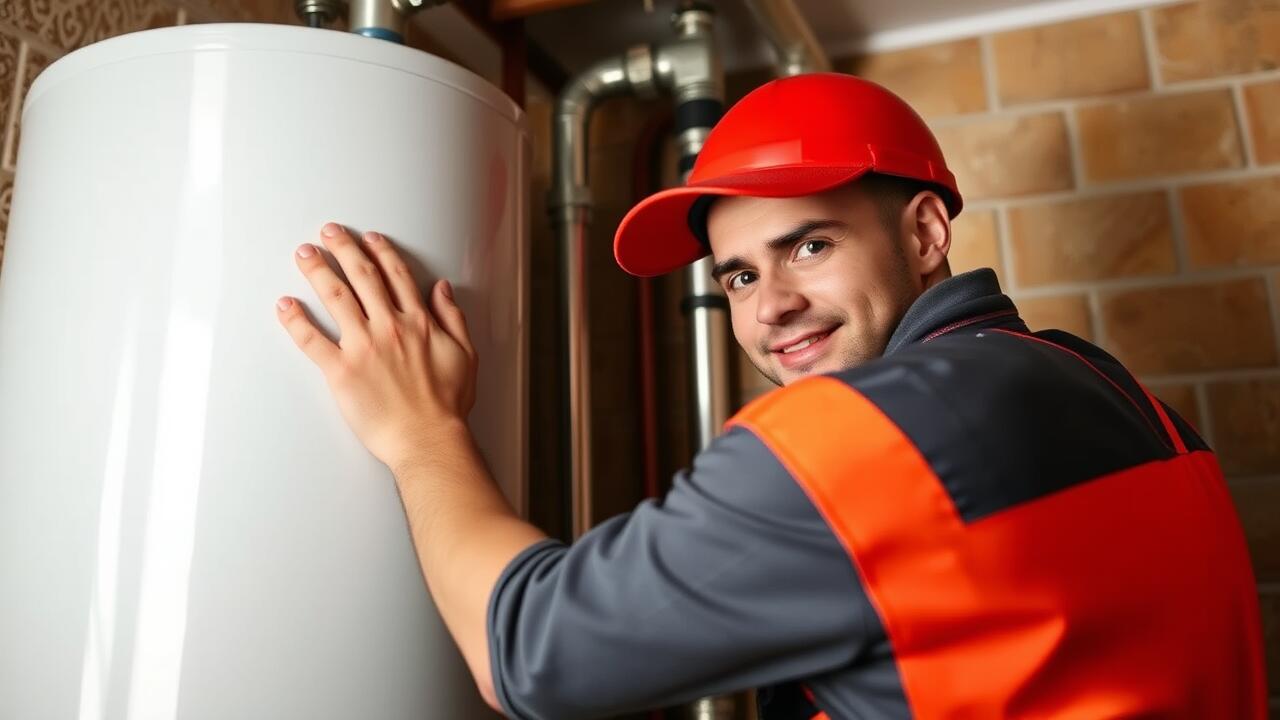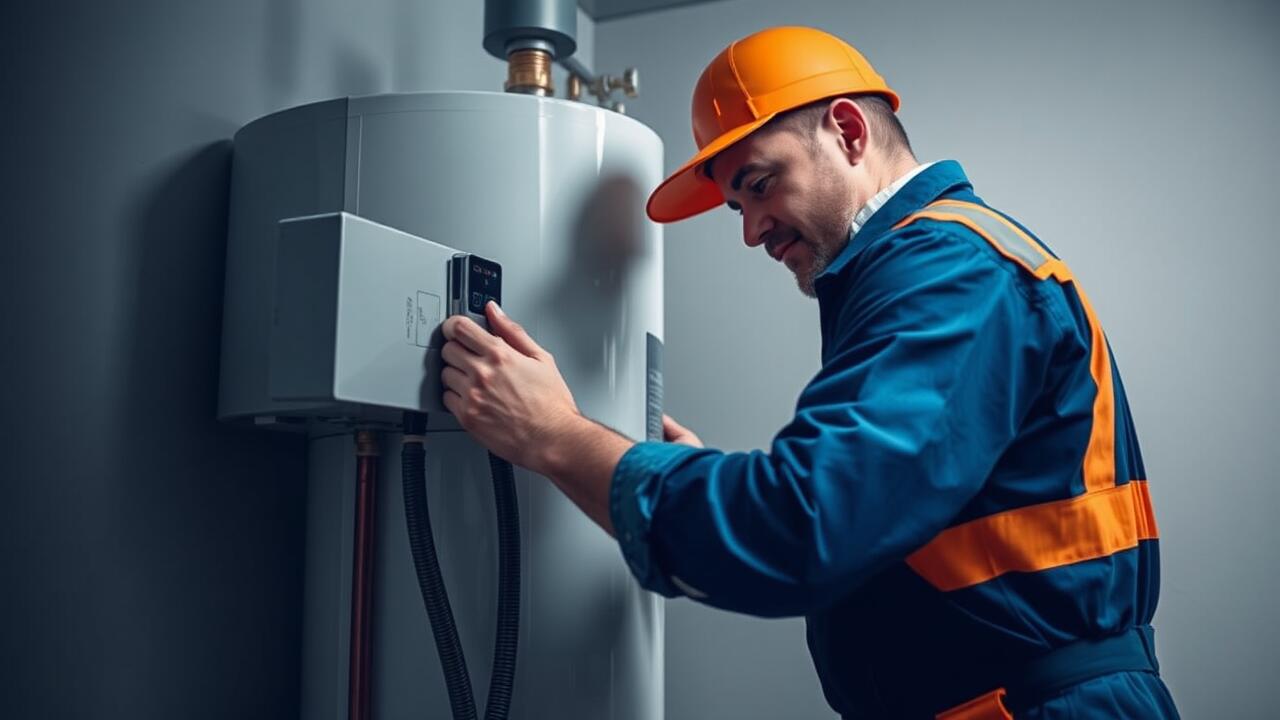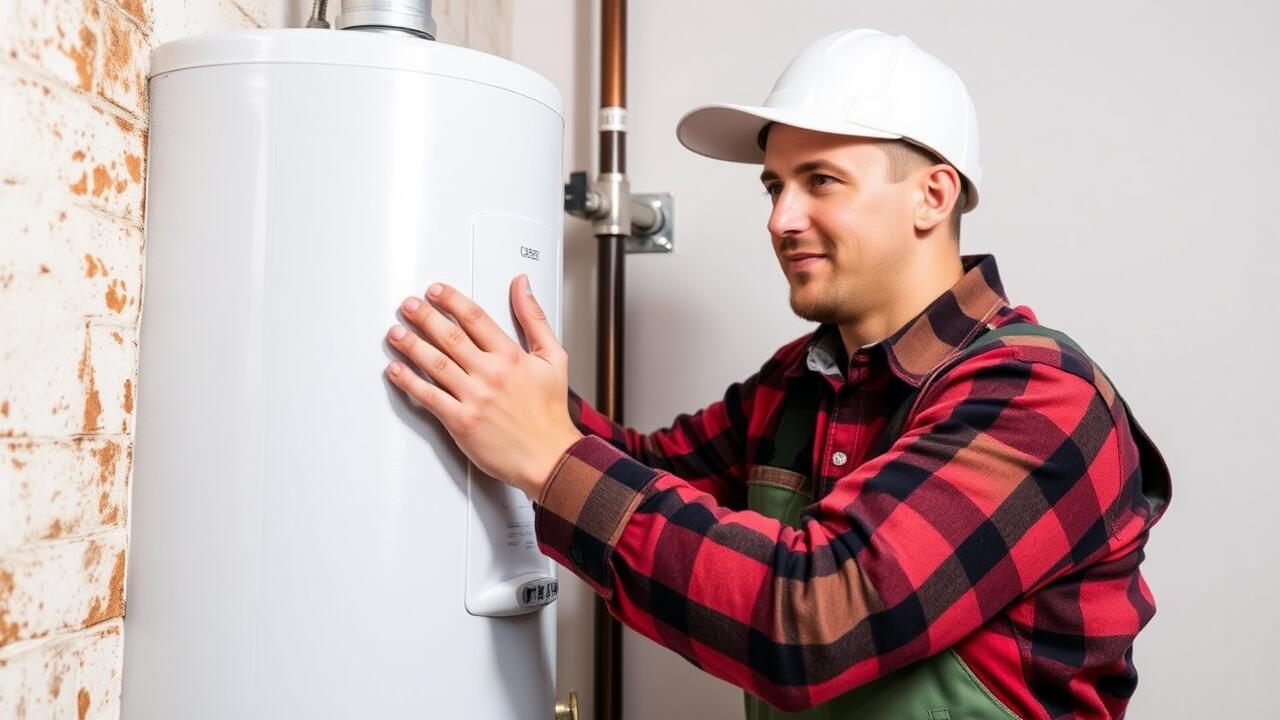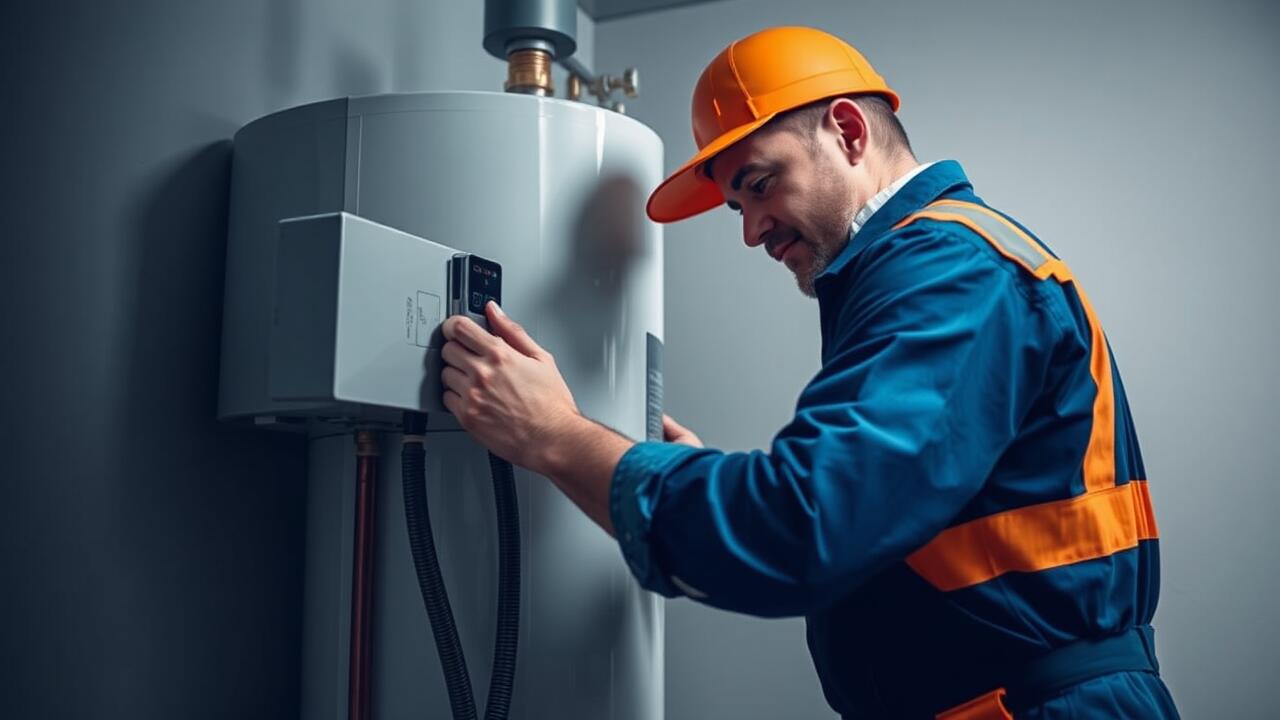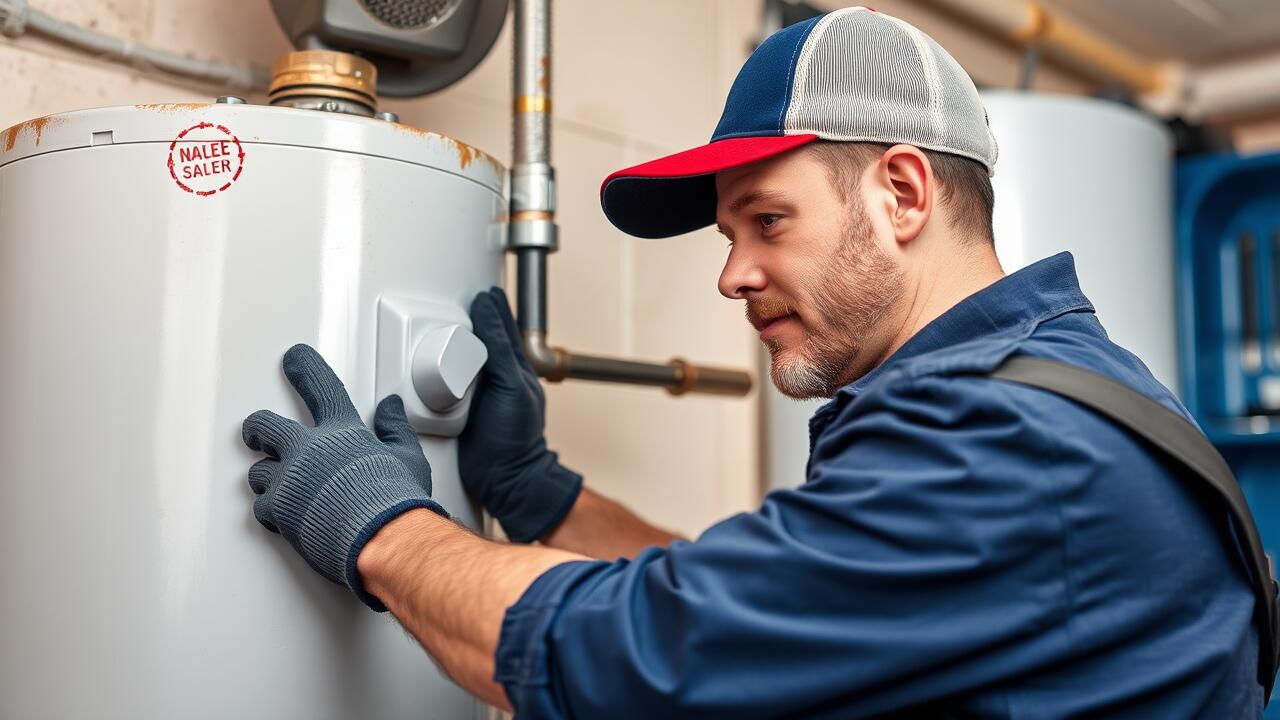
Potential Consequences of Not Having a Permit
Neglecting to obtain a permit for hot water heater replacement can lead to significant consequences. Homeowners may face fines imposed by local authorities. Additionally, the absence of a permit can complicate future home inspections, potentially affecting home sales or refinancing options. Issues may arise with insurance claims if damage occurs related to a non-permitted installation. For those seeking assistance, searching for "Water heater repair near me" can provide access to qualified professionals familiar with local regulations.
Lack of permitting can also result in unsafe installations. Without following established codes and standards, the risk of equipment failure or safety hazards increases dramatically. This can pose a serious danger to occupants and property. Homeowners should be aware that addressing these safety concerns often involves additional costs. Ignoring the need for permits may ultimately lead to more extensive repairs or replacements down the line.
Risks Involved in Non-Compliance
Failing to obtain a permit for hot water heater replacement can expose homeowners to several risks. Inspections ensure that installations meet safety codes, protecting against potential hazards such as leaks, gas leaks, or electrical failures. Without a permit, homeowners may face costly fines or be required to dismantle and redo the installation at their own expense. Additionally, in the event of a malfunction, warranty coverage might be voided, leaving homeowners to shoulder repair costs without any assistance.
Another significant concern arises when it comes to insurance claims. Insurance companies may refuse to cover damages resulting from an unpermitted installation or repair. This makes the search for services, such as "water heater repair near me," even more critical. Homeowners should be aware that non-compliance can lead to serious financial repercussions, especially in emergencies when a timely response is essential. Prioritizing compliance creates peace of mind while safeguarding property and finances.
Permits for Different Hot Water Heater Types
When considering the replacement of a hot water heater, the type of unit plays a significant role in determining whether a permit is required. For electric hot water heaters, local building codes often have specific stipulations related to installation and electrical connections. Similarly, gas hot water heaters may necessitate additional permits due to regulations concerning gas line modifications and venting requirements. It is crucial to understand these distinctions before proceeding with the replacement.
If you are unsure about the permit requirements for the type of water heater you intend to install, seeking professional guidance is advisable. Local contractors or plumbing services can provide clarity on the permits needed based on your specific situation. Utilizing search terms like "water heater repair near me" can help locate nearby experts who are familiar with local regulations. This approach ensures compliance with the law and promotes the safe installation of your new hot water heater.
Electric vs. Gas Hot Water Heaters
When it comes to choosing between electric and gas hot water heaters, it is essential to consider the energy source available in your location. Electric water heaters typically have a simpler installation process and do not require ventilation, making them suitable for various settings. They may, however, lead to higher electricity bills depending on usage and local rates. On the other hand, gas water heaters can heat water faster and are generally more energy-efficient, which might result in lower monthly costs. However, they require proper ventilation to ensure safety and compliance with building codes.
Homeowners should be aware that both types of water heaters require permits for installation or replacement in California. This ensures that the work meets local codes and safety standards. Individuals planning to replace their water heater should consult with professionals who can help navigate the permitting process. Searching for "water heater repair near me" can connect you to local experts who understand the regulations and can assist in ensuring that you have the necessary permits for your installation.
How to Prepare for an Inspection
Preparing for an inspection of your newly installed hot water heater requires careful attention to detail. Begin by ensuring that all necessary documentation is readily available, including the installation permit, any inspection requests, and manufacturer specifications. Familiarizing yourself with local building codes will also help streamline the process. Keep the area around the water heater clear to allow easy access for the inspector. This not only demonstrates responsibility but also speeds up the inspection process.
Ensure that the water heater is installed correctly and functions properly before the inspection. Check for any leaks, proper venting, and correct electrical or gas connections. A well-prepared installation can significantly reduce the likelihood of issues during the inspection. Should you encounter any problems or have concerns about safety or compliance, searching for “water heater repair near me” can connect you with professionals who can help resolve these issues before the inspection takes place.
Checklist for a Successful Inspection
Preparing for an inspection involves careful attention to detail. Start by ensuring that all necessary paperwork is in order. This includes the permit application and any installation manuals specific to your hot water heater model. Disconnect the existing unit if applicable, ensuring that utility connections are correctly managed. It’s also wise to check for any local updates regarding inspection requirements specific to your area. If you want to find leading professionals in your vicinity, search for "water heater repair near me" to make the process smoother.
Next, focus on the physical aspects of your installation. Double-check that your new hot water heater is installed according to code and manufacturer’s specifications. Make sure there is adequate clearance around the unit for safety and maintenance. Additionally, verify that all plumbing and electrical connections are secure and up to local standards. It may help to prepare the area by cleaning and removing any obstacles that could hinder the inspection process. Taking these steps can reduce potential delays and ensure a more successful inspection.
FAQS
Do I need a permit to replace a hot water heater in California?
Yes, in California, a permit is generally required to replace a hot water heater to ensure compliance with local building codes and safety regulations.
What are the potential consequences of not obtaining a permit?
Not obtaining a permit can lead to fines, complications during home sales, and safety hazards if the installation does not meet code requirements.
Are there different permit requirements for electric and gas hot water heaters?
Yes, the permit requirements can vary depending on whether you are installing an electric or gas hot water heater, as each type has specific regulations and safety standards.
How can I prepare for an inspection after replacing my hot water heater?
To prepare for an inspection, ensure that the installation meets all local codes, review your checklist for compliance, and have all necessary documentation ready for the inspector.
What should I include in my checklist for a successful inspection?
Your checklist should include verifying proper installation, checking for leaks, ensuring all connections are secure, and confirming that the unit meets energy efficiency requirements.
